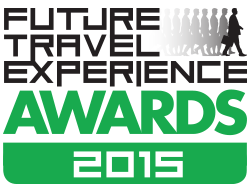
The travel industry’s most pioneering airports and airlines were last night recognised for their outstanding efforts to improve the passenger experience at the 5th Future Travel Experience Awards ceremony, which took place at Future Travel Experience Global 2015.
The FTE Awards ceremony was held at the Mandalay Bay Resort Las Vegas, where more than 600 senior travel industry figures from airlines, airports, government agencies, vendors and a variety of other travel industry stakeholders have gathered to reveal their passenger-focused plans, discuss their future visions and launch their latest products and services designed to improve the end-to-end passenger experience.
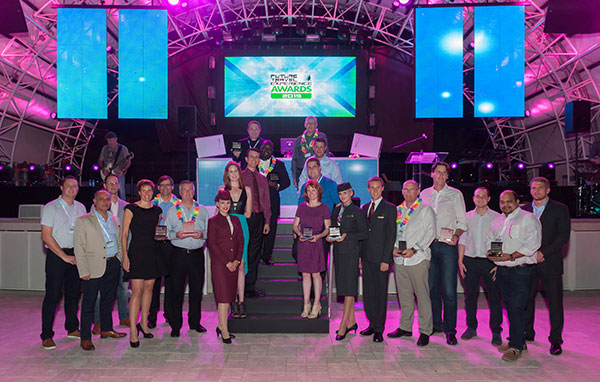
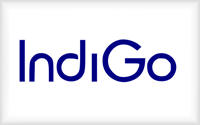 Best Check-in Initiative: IndiGo
Best Check-in Initiative: IndiGo
Indian low-cost carrier IndiGo was presented with the “Best Check-in Initiative” award for its development of the “Integrated Travel Document”, which effectively removes the check-in process for domestic travellers. At the point of booking, customers who book a domestic ticket via the airline’s website can select their seat and meal choice, and provide the necessary passenger information, which then allows them to receive their electronic boarding pass along with their travel itinerary. By removing the manual check-in process, IndiGo has managed to simplify the check-in process for a large section of its customer base.
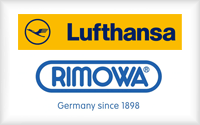 Best Baggage Initiative – Lufthansa & RIMOWA
Best Baggage Initiative – Lufthansa & RIMOWA
Lufthansa and RIMOWA were jointly awarded the “Best Baggage Initiative” for the launch of the RIMOWA Electronic Tag, which is the first digital and fully integrated mobility solution for luggage. Lufthansa is the launch partner for the solution, which enables travellers to update the embedded, permanent smart bag tag using their smartphone. The RIMOWA Electronic Tag was launched at FTE Global 2015.
Best Airport Security Initiative – Melbourne Airport & Qantas
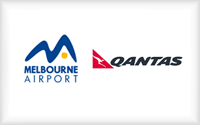 Melbourne Airport and Qantas were jointly awarded the “Best Airport Security Initiative” following the launch of the first Smart Security trial in the Asia Pacific region. Smart Security, an initiative jointly led by IATA and ACI, is based on a vision whereby passengers proceed through security with minimal inconvenience, where security resources are allocated based on risk, and where airport facilities can be optimised. Melbourne Airport and Qantas are trialling Centralised Image Processing, automated lane design and integration, a parallel divestment solution, and a linear loading solution and powered infeed conveyor. As well as allowing for remote screening of cabin baggage, controlled diversion of rejected items, touch screen threat identification, real-time quality and performance data analytics, the solution also allows multiple passengers to prepare for security at once. For Smart Security to gain the traction it needs to drive long-term improvements, it must be trialled on a global basis, and Melbourne Airport and Qantas has taken the lead in the Asia Pacific region.
Melbourne Airport and Qantas were jointly awarded the “Best Airport Security Initiative” following the launch of the first Smart Security trial in the Asia Pacific region. Smart Security, an initiative jointly led by IATA and ACI, is based on a vision whereby passengers proceed through security with minimal inconvenience, where security resources are allocated based on risk, and where airport facilities can be optimised. Melbourne Airport and Qantas are trialling Centralised Image Processing, automated lane design and integration, a parallel divestment solution, and a linear loading solution and powered infeed conveyor. As well as allowing for remote screening of cabin baggage, controlled diversion of rejected items, touch screen threat identification, real-time quality and performance data analytics, the solution also allows multiple passengers to prepare for security at once. For Smart Security to gain the traction it needs to drive long-term improvements, it must be trialled on a global basis, and Melbourne Airport and Qantas has taken the lead in the Asia Pacific region.
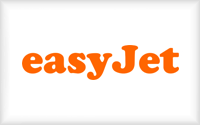 Best Passenger Assistance Initiative – easyJet
Best Passenger Assistance Initiative – easyJet
easyJet was presented with the award for “Best Passenger Assistance Initiative” for its launch of “Mobile Host”, which helps to simplify the departures experience for passengers by providing automatic reminders and directions via the easyJet app for iPhone. Mobile Host combines live data from the airport’s information systems with the passenger’s booking details, location and flight time to deliver bespoke information while the passenger is in the terminal. Among the key features are check-in reminders, directions to bag drop and departure gates thanks to integration with Google Indoor Maps, and real-time baggage belt push notifications.
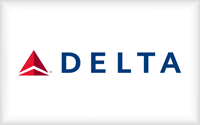 Best Initiative at the Gate – Delta Air Lines
Best Initiative at the Gate – Delta Air Lines
Delta Air Lines was named winner of the “Best Initiative at the Gate” in recognition of its effort to speed-up and simplify the boarding process by introducing its “Early Valet” service. During the busy summer season, Airport Customer Service agents have labelled and pre-loaded passengers’ carry-on luggage into the overhead bins above their assigned seat. The idea behind the initiative was to simplify the boarding process, particularly for families with small children, passengers with disabilities, elderly travellers and high value customers. The initiative has been trialled on selected flights from at Los Angeles, Atlanta, Seattle-Tacoma, Minneapolis/St. Paul and New York JFK airports, and Delta has reported an 8% increase in customer satisfaction scores on those flights that have received the Early Valet service.
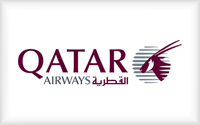 Best Up in the Air Experience – Qatar Airways
Best Up in the Air Experience – Qatar Airways
Qatar Airways was presented with the “Best Up in the Air Experience” award, which recognises the airline that has gone the extra mile to provide an industry-leading in-flight experience. Among the 5-star carrier’s standout achievements over the past 12 months include becoming the first airline to operate the new Airbus A350-XWB, featuring 80-inch fully flat beds in Business Class along with an onboard bar, plus 18-inch wide seats in the Economy Class cabin, which features LED mood lighting and advanced air conditioning. The “Oryx” IFE system has also received a face-lift to bring consistency to the fleet, with the number of movies and television shows available to passengers increased from 950 to more than 2,000. The rollout of onboard Wi-Fi continues; the Boeing 787-7s are connectivity equipped, A330-200s are being retrofitted with Panasonic Avionics’ eXConnect solution, which will also be installed on 777s, and the A350s are currently equipped with Inmarsat SwiftBroadband, which will be upgraded to Global Xpress when the service is made available to commercial carriers. To ensure the airline’s level of onboard service is of a consistently high standard, Qatar Airways hosts weekly workshops for flight attendants, staff are being trained towards becoming certified Emotional Intelligence Practitioners, and an Elite Service training programme has been tailored to the needs of premium passengers, such as those who fly on the Business One all-Business Class service between Doha-London and Doha-Jeddah. As it prepares for the launch of its fully owned subsidiary Al Maha Airways, the distinctive Qatar Airways customer experience will soon be extended to domestic services in Saudi Arabia, widening the reach of the industry-leading levels of service.
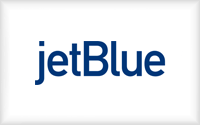 Best Up in the Air Initiative – JetBlue Airways
Best Up in the Air Initiative – JetBlue Airways
JetBlue Airways was presented with the “Best Up in the Air Initiative” award for its pioneering use of mobile technology to empower flight attendants and enhance the passenger experience in-flight. By Q2 2015, all of the carrier’s flight attendants were equipped with iPad Minis and the In-flight Service Assistance (IfSA) application to help them improve and personalise the passenger experience, and drive in-flight ancillary sales. The purpose-built IfSA application and crew portal gives flight attendants access to an electronic manifest that shows them which passengers have made special requests, and who is a TrueBlue or Mosaic member, so they can tailor their service accordingly. The iPads can also be used as point-of-sales devices, and also include a translation app, so questions and answers can be translated into various languages to overcome any potential language barriers. The carrier also plans to use the iPads to provide flight attendants with access to passengers’ flight and onboard purchase history. In addition, JetBlue was the first airline to accept onboard payment via Apple Pay, further highlighting its dedication using the latest technologies to simplify the in-flight passenger experience
 Best Immigration & Arrivals Initiative – Aruba Happy Flow
Best Immigration & Arrivals Initiative – Aruba Happy Flow
The revolutionary Aruba Happy Flow project, which went live in May 2015, was awarded the “Best Immigration & Arrivals” initiative. Happy Flow – a collaborative project driven by the governments of Aruba and the Netherlands, Schiphol Group, KLM, Aruba Airport Authority and lead contractor Vision-Box – uses facial recognition technology as the basis for a single passenger token, and removes the need for passengers to present their passport and boarding pass at multiple stages of the journey. The process is currently in place for KLM flights between Aruba and Amsterdam. When a passenger checks in at a self-service kiosk their photo is taken, which is then verified against, and linked with, their electronic passport, while at the same time the border control background checks are performed. Once these immigration checks are automatically undertaken, all of the airport stakeholders receive the information. For instance, the immigration agency receives the information when the passenger checks in, so they know that they will soon be entering the immigration checkpoint. The long-term goal of Happy Flow is to create a wider European preclearance programme, which would pave the way for a transformation in the way passengers are processed in airports around the world.
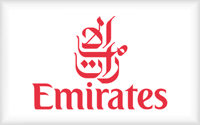 Best Mobile Technology Initiative – Emirates
Best Mobile Technology Initiative – Emirates
Emirates was presented with the award for “Best Mobile Technology Initiative” for its rollout of the “Journey Manager” app at Dubai International Airport. The airline has equipped its managers and supervisors in Dubai with Samsung Note 4 devices with the Journey Manager app installed, which enables them to access real-time flight information and to scan passengers’ boarding passes so they can tell them which gate they will be departing from and where the gate is. If a passenger has a short connecting time, the agent can use the device to inform the gate supervisor that the passenger is on their way to gate, and if a connecting flight is missed, the agent can provide the passenger with information on alternative flights. During a daily six-hour peak period, 20,000 transit passengers go through transfer desks at Dubai International Airport, and the app has been developed to ensure staff are as well equipped as possible to help passengers enjoy a smooth transfer.
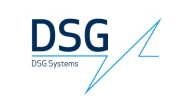 Best Exhibition Stand 2015:
Best Exhibition Stand 2015:





